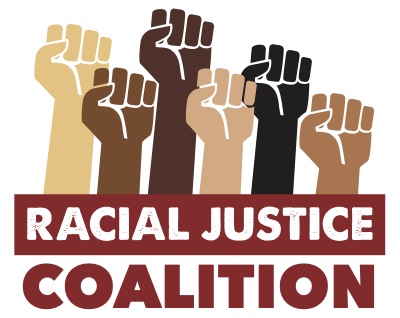Asheville City Council will meet again on Tuesday, April 27th, at 5 pm. We’ve identified five items with racial justice implications on this meeting’s agenda. Below you can find more information on each of those items as well as instructions on how to contact the City Council if you’d like to advocate with us.
- Consent Agenda D.1. High Intensity Drug Trafficking Areas (HIDTA) Grant. This resolution would mean accepting $275,416 to give to the Asheville Police Department (APD) to focus on drug “trafficking and production.” Funneling more money into the “war on drugs” is highly problematic. Rather than perpetuating this legacy of racism against Black and Brown communities, how can the City take steps to address the “root causes” of poverty, drug solicitation, and addiction?
- Consent Agenda L.1. Resolutions authorizing emergency non-congregate homeless shelter and operations. This resolution would pull $468,407 from the Rescue Act to contract with Ramada Inn and Sunrise Community for Recovery and Wellness to provide low-barrier, non-congregate shelter. We think this is a step in the right direction, and encourage City Council to approve this resolution. High-barrier and congregate shelters are incredibly unsafe for individuals with marginalized identities, so we are in favor of more funding for “low-barrier” and “non-congregate” shelters that don’t further displace folks by sending them out of the county. Because racism, misogyny, and poverty are inextricably linked, homeless shelters frequently force BIPOC and racist white folks into the same living spaces. The impacts can be lethal for BIPOC, especially women and trans BIPOC folks. We believe that while this is a positive step, the City of Asheville should begin collaborating with thought leaders, organizations, and our houseless communities and begin investing in long-term housing solutions for our unhoused neighbors.
- Public Hearing A. Public hearing for submission of the City’s Annual Action Plan for 2021-22 for Community Development Block Grants (CDBG) to the U.S. Dept. of Housing & Urban Development. This hearing will detail the 2021-22 plan for CDBG funds – money coming through the city, going to many nonprofits. We’re unclear what kind of racial justice lens many of these organizations have, and wonder what process the City undertook to evaluate them. This funding has been going to many of these same organizations for decades, without any shift in the racial inequities in our region. How is it going to be any different this time around? How can we begin reimagining how money that is supposed to benefit our community is spent? What would a Participatory Budgeting Process look like in Asheville? Check out this site to find out more about Participatory Budgeting.
- Unfinished Business A. Resolution authorizing the City Manager to enter into an agreement with Asheville-Buncombe United for Youth Network. This resolution would initiate the City entering into partnership with United for Youth which includes many community partners (including RJC), and the proposal seems grounded in good analysis. One red flag in this resolution is its mention that the City will continue to “reimagine the role of School Resource Officers (SROs) to include support of United for Youth Partnership.” That seems to keep the idea of SROs (i.e. police) in schools in place, rather than replacing them. Having SROs in schools supports the school-to-prison pipeline, which disproportionately harms youth of color, and perpetuates the false notion that having police on campus creates a safer learning environment. In actuality, funds that support SROs could be used to provide services and personnel that enhance the overall atmosphere and address the issues that have led to the abysmal race-based opportunity gap. How does “reimagining the role of School Resource Officers” address these issues? What could this “reimagining” look like?
- New Business A. Ordinance prohibiting discriminatory practices in private employment and public accommodations. The City is proposing adopting a nondiscrimination ordinance (NDO) similar to the County’s recently approved NDO. We support this ordinance, just as we supported the County’s version. One of our relevant concerns is that the City believes that no additional staff are needed to process complaints through the Office of Equity and Inclusion, and we wonder whether the Office, which is currently down to one team member, will be able to take this on in its current state. When will the City be replacing the lost staff members? Alternatively, is this the work for this Office, or is there some other way the City can process and address these complaints?
If you feel driven to make your voice heard on any or all of these issues, you may contact City Council in one or more of the following ways:
Public comment for the City Council meeting
Instructions for public comment emailing, voicemailing, or signing up for live public comment can be found at the City’s Virtual Meeting page
(Note: the deadline for submitting a comment by voicemail or signing up for live public comment is 9:00am on Tuesday 4/27)
Email or Call Council Members directly
To email all Council Members at once – AshevilleNCCouncil@ashevillenc.gov
Mayor Esther Manheimer – esthermanheimer@avlcouncil.com; 828-259-5604
Vice Mayor Sheneika Smith – sheneikasmith@avlcouncil.com; 704-401-9104
Sandra Kilgore – sandrakilgore@avlcouncil.com; 954-540-5593
Antanette Mosley – antanettemosley@avlcouncil.com; phone number not provided
Kim Roney – kimroney@avlcouncil.com; 828-771-6265
Sage Turner – sageturner@avlcouncil.com; 828-423-0621
Gwen Wisler – gwenwisler@avlcouncil.com; 828-333-1767
